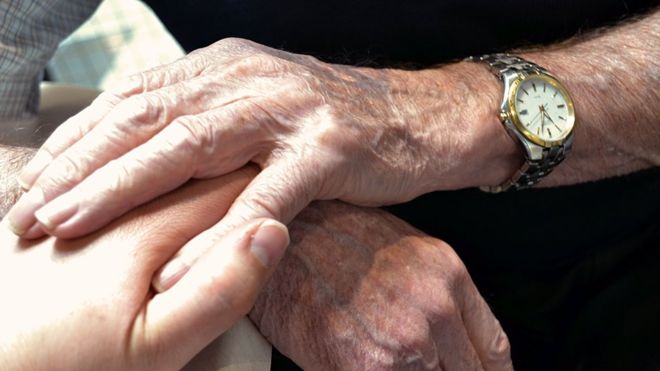The Canadian government has put forward a bill to make medically-assisted death available to people who are not terminally ill.
The bill opens the door to allowing Canadians with degenerative illnesses like cerebral palsy to seek medically-assisted death.
Health minister Patty Hajdu said the proposal would protect vulnerable people while giving Canadians autonomy.
It was introduced in parliament on Monday and has cross-party support.
The legislation was precipitated by a 2019 Quebec Superior Court decision that struck down the requirement for patients to prove their natural death was “reasonably foreseeable” in order to seek to terminate their life.
Justice Christine Baudouin said the requirement infringed on the “life, liberty and security of the person” and was thus unconstitutional.
She sided with the plaintiffs, Nicole Gladu, 74, and Jean Truchon, 51, in the high profile case last autumn.
Both plaintiffs had degenerative illnesses that had worsened to the point that they had lost all their autonomy. They experienced persistent and irremediable suffering, their lawyer Jean-Pierre Ménard argued.
Mr Truchon had cerebral palsy, and Ms Gladu had post-polio syndrome, and both wanted medical assistance to end their lives.
However, advocates for people with disabilities, including the Council of Canadians with Disabilities, have said the court decision sent the message that “having a disability is a fate worse than death”.
They urged the government to appeal the Quebec court ruling, which it declined to do.
On Monday, Prime Minister Justin Trudeau’s Liberal government brought forward the assisted death bill.
It would create a two-track system for determining a person’s eligibility. One track for people who are terminally ill, and one track for people who are not.
Patients in both tracks must prove they are facing “intolerable” suffering.
The bill would explicitly exclude eligibility for individuals suffering solely from mental illness.
The minority government will need the support of parliamentarians from other parties to pass the bill. NDP leader Jagmeet Singh has previously signalled support for expanding assisted dying.
Canada made medically-assisted death legal in September 2016, becoming one of the few places in the world where it is legal to help sick people die.
More than 13,000 Canadians have been given a medically-assisted death, according to data provide by the justice department. Two-thirds of patients receiving an assisted death cited cancer as the underlying reason, followed by neurological conditions and cardiovascular or respiratory conditions.
Medically assisted deaths counted for 1.89% of all deaths in Canada in 2019.
The bill’s proposed changes also ease some safeguards previously put in place for people who are terminally ill, such as allowing advanced consent for people who are dying but may lose capacity for consent.
Under Canadian law, patients with diseases like dementia were eligible for a medically assisted death, but had to have it administered before they lost their capacity to legally give their consent.
The government said this criteria led people to end their lives earlier, “robbing them of time”.

